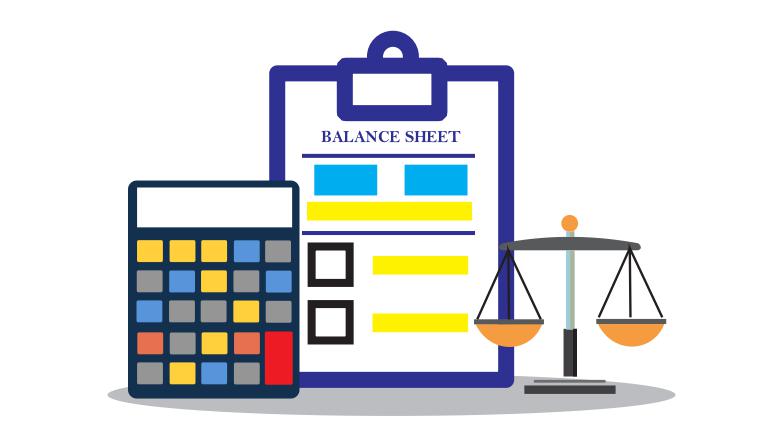
Balance Sheet P&L
Introduction
The preparation of a balance sheet and a profit & loss (P/L) statement is fundamental to understanding a business's financial health. These documents are not just statutory requirements but are crucial tools for decision-making, investor relations, and strategic planning. CorpIQ's services in preparing balance sheets and P/L statements are designed to provide businesses with accurate, comprehensive, and insightful financial reporting.
Understanding the Significance of These Financial Statements
A balance sheet provides a snapshot of a company's financial position at a specific point in time, detailing assets, liabilities, and equity. The P/L statement, or income statement, on the other hand, shows the company's revenues, expenses, and profits or losses over a period. Together, these statements offer a complete view of the financial performance and stability of a business.
DOCUMENTS AND INFORMATION FOR FINANCIAL STATEMENT PREPARATION
Gathering the Essentials for Accurate Financial Reporting
Effective preparation of balance sheets and P/L statements requires detailed financial data. CorpIQ assists businesses in compiling the necessary information for precise and compliant financial reporting.
Key Documents and Information
1. Transaction Records: Detailed records of all business transactions.
2. Inventory Details: Information on inventory levels and valuation.
3. Debt and Equity Records: Details of outstanding debts, equity shares, and other financial instruments.
4. Asset Information: Data on fixed and current assets, including depreciation schedules.
5. Expense Records: Detailed account of all business expenses.
CorpIQ's Expertise in Document Management
Our team ensures that all necessary financial data is accurately gathered, categorized, and ready for the preparation of financial statements.
PROCEDURE FOR PREPARING BALANCE SHEETS AND P/L STATEMENTS
A Methodical Approach to Financial Statement Preparation
The process of preparing balance sheets and P/L statements involves several meticulous steps, ensuring accuracy and compliance with accounting standards.
Step-by-Step Guide
1. Data Collection and Verification: Gathering and verifying all financial data relevant to the reporting period.
2. Trial Balance Preparation: Compiling a trial balance to ensure that total debits equal total credits.
3. Adjustments and Reconciliations: Making necessary adjustments for accrued expenses, prepaid expenses, depreciation, etc.
4. Drafting Financial Statements: Preparing the initial drafts of the balance sheet and P/L statement.
5. Review and Finalization: Reviewing the drafts for accuracy and completeness, and finalizing the statements.
CorpIQ's Role in Financial Reporting
Our experts not only prepare these statements but also provide insights into what they reveal about your business's financial health.
KEY COMPONENTS OF BALANCE SHEETS AND P/L STATEMENTS
Decoding the Elements of Financial Reporting
Understanding the key components of balance sheets and P/L statements is crucial for accurate financial analysis.
Balance Sheet Components
1. Assets: Current and non-current assets including cash, inventory, property, plant, and equipment.
2. Liabilities: Current and long-term liabilities such as loans, accounts payable, and other debts.
3. Equity: Shareholder equity, retained earnings, and capital stock.
P/L Statement Components:
1. Revenue: Gross revenue from sales and services.
2. Cost of Goods Sold: Direct costs attributed to the production of goods sold.
3. Expenses: Operating expenses, depreciation, and amortization.
4. Net Profit or Loss: The final profit or loss after deducting expenses from revenue.
BENEFITS OF ACCURATE BALANCE SHEET AND P/L PREPARATION
Leveraging Financial Statements for Business Success
Well-prepared balance sheets and P/L statements offer significant advantages to businesses.
Key Benefits
1. Informed Decision Making: Provides vital information for strategic decision-making.
2. Investor and Creditor Confidence: Builds trust among investors and creditors.
3. Regulatory Compliance: Ensures compliance with financial reporting standards.
4. Performance Tracking: Allows for the tracking of financial performance over time.
COMMON CHALLENGES IN FINANCIAL STATEMENT PREPARATION
Addressing the Intricacies of Financial Reporting
The preparation of balance sheets and P/L statements can be complex, presenting several challenges.
Common Challenges
1. Maintaining Accuracy: Ensuring all financial data is accurately recorded and reported.
2. Compliance with Standards: Adhering to constantly evolving accounting standards and principles.
3. Complex Transactions: Dealing with complex financial transactions and their impact on financial statements.
4. Time Management: Managing the timely preparation of statements, especially for businesses with large volumes of transactions.
CorpIQ's expertise helps businesses overcome these challenges, ensuring robust and reliable financial reporting.




